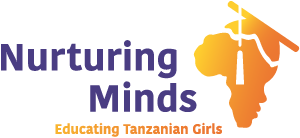Designing a Culturally Responsive Negotiation Curriculum for SEGA: Insights from the Harvard Negotiation & Mediation Clinical Program
The Harvard Negotiation and Mediation Clinical Program (HNMCP) recently wrapped up a 12-week initiative to create a culturally responsive negotiation curriculum for the SEGA Girls’ School in Tanzania. Guided by Professor Rachel Viscomi and a team of graduate students, the project included focus groups, surveys with alumni, and interviews with teachers to gain insights into the unique cultural context and challenges SEGA students encounter. The team developed a negotiation training outline focusing on assertiveness, empathy, and decision-making skills, which they piloted with Form 3 students during their visit. In the reflections below, graduate students Arianne Evans, Salome Van Bunnen, and Jean Luc Nsabimana share their experiences and contributions to the development of this impactful program.
Negotiation is a powerful tool that can shape futures, especially for young women and girls. Research has consistently shown that equipping them with negotiation skills can positively impact their development, decision-making, and empowerment. Recognizing this, Nurturing Minds and SEGA partnered with the Harvard Dispute Systems Design Clinic to develop a culturally responsive negotiation curriculum for SEGA students. This initiative aimed to provide students with the skills to navigate complex situations, make informed decisions, and foster constructive conversations.
Our shared commitment to applying the skills we were learning at Harvard in a meaningful way inspired us to take on this project. The opportunity to collaborate with SEGA allowed us to design a curriculum that would empower young girls with essential negotiation skills, a mission that was both impactful and consequential.
Addressing SEGA Students' Challenges in Negotiation
One of the most critical steps in creating the curriculum was understanding the unique challenges SEGA students face in negotiations. Through interviews, surveys, and focus groups, we learned that SEGA students encounter obstacles in their communities, schools, and families. SEGA alumni shared similar challenges, particularly when negotiating at universities or in the workplace.
A key issue for many students was the discrimination or lack of consideration they faced based on their gender. Another challenge was navigating the perception of negotiation within their communities, where it is often seen as confrontational rather than constructive. To address these challenges, we developed a curriculum that reimagines negotiation as a tool for coalition-building that fosters empathy, understanding, and collaboration. By framing negotiation this way, we aim to help students navigate societal expectations while empowering them to create solutions that benefit all parties involved.
Culturally Adapting the Curriculum for SEGA Students
Before finalizing the curriculum, we knew it was essential to ensure it resonated with SEGA students and aligned with Tanzanian culture. This led us to travel to SEGA in Tanzania, where we piloted a lesson to test our approach. Immersing ourselves in the culture allowed us to understand how SEGA students learn and interact and what they already know about negotiation.
One important insight we gained was the significance of integrating cultural references—whether through names, stories, or scenarios—into the lessons. These connections helped students relate to the material, making it more relevant to their lives and experiences.
Engaging SEGA Students through Role-Play
Role-playing scenarios became a cornerstone of our teaching approach. We found that SEGA students enjoyed this immensely. The "learning by doing" method proved practical and appreciated by the students. This approach reinforced theoretical principles and allowed students to practice negotiation in real time, building their confidence and skills.
Insights and Lessons Learned from the Pilot Sessions
One of the most valuable aspects of our pilot session was the opportunity to gather feedback from SEGA students. They were curious and engaged, asking thoughtful questions during and after the session. Many students wanted to know how to handle complex negotiations, especially when the techniques they had learned didn't lead to an immediate solution. These insights allowed us to fine-tune the curriculum, ensuring it addressed their concerns and gave them practical tools for real-world situations.
Our research also involved gathering information through interviews with SEGA students, alumni, teachers, and staff, as well as negotiation experts and professors. These conversations were instrumental in shaping a curriculum that balanced theory with practice. We adopted a "show, tell, do" method for our lessons, starting with a story or testimony to introduce the topic, then explaining the theory, and ending with hands-on practice through role plays.
The Long-Term Impact of Negotiation Training at SEGA
The long-term impact of this negotiation training is promising. By introducing these skills into SEGA's Form 3 program, we hope to contribute to the student’s education in a lasting way. The training will equip them with tools to prepare for challenging conversations, understand their and others’ interests, know when to walk away, and find creative solutions that generate value for everyone involved.
Ultimately, the curriculum's success lies in adapting to the local context. While we didn't need to adjust our language, we did emphasize clarity and understanding due to our different English accents. We also tailored the scenarios, names, and examples used in the lessons to better fit Tanzanian culture, ensuring the material resonated with the students.
Looking Ahead
The pilot session was a transformative experience. It allowed us to meet SEGA students and teachers, immerse ourselves in Tanzanian culture, and assess the students' needs and expectations. This experience has greatly influenced the final curriculum, incorporating cultural references, structured learning sessions, and interactive content.
Moving forward, the goal is to train SEGA teachers to teach the negotiation curriculum themselves, ensuring that the program is sustainable and continues to impact future generations of SEGA students.
Together, we believe this culturally responsive negotiation curriculum will empower young girls to be confident, creative, and empathetic negotiators in their communities and beyond.



